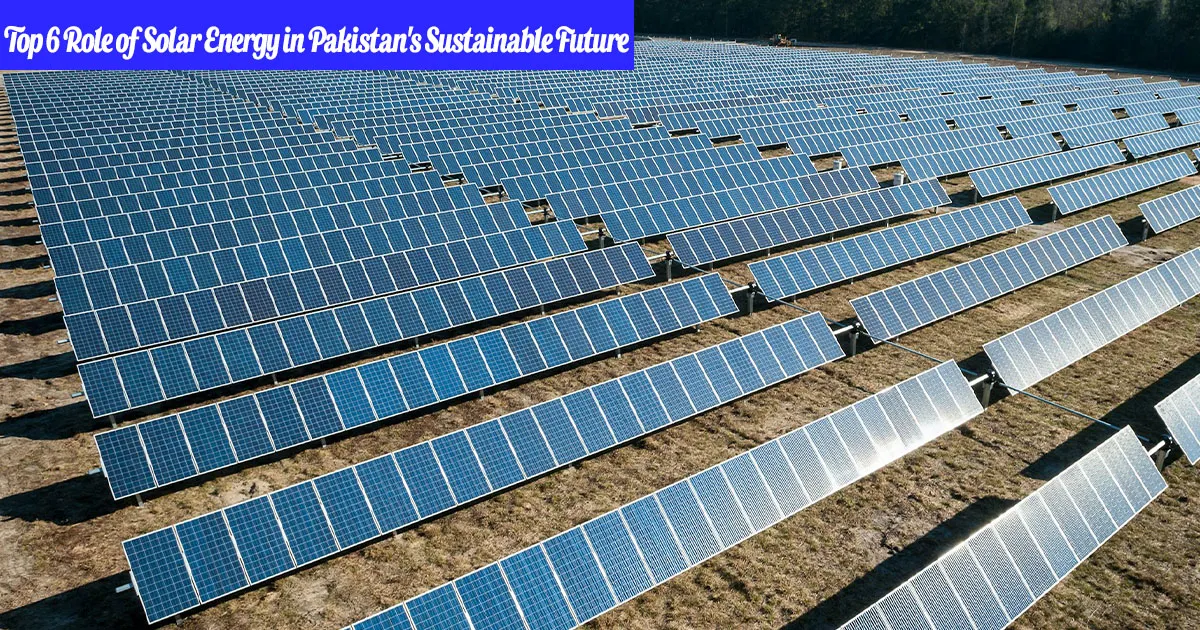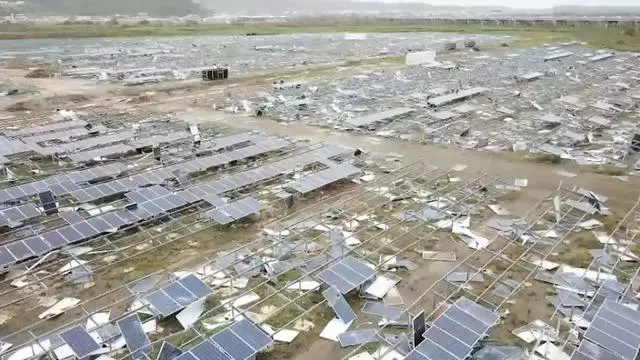The Role of Solar Energy in Pakistan’s Sustainable Future
Pakistan, like many other countries, faces significant challenges when it comes to energy generation and sustainability. The country has long relied on traditional sources of energy such as coal, oil, and natural gas. However, the increasing demand for electricity, combined with the depletion of non-renewable resources, has led to frequent power shortages and load shedding. In this context, Solar Energy in Pakistan is emerging as a crucial solution to meet energy needs and create a more sustainable future for the country.
The Energy Crisis in Pakistan
Pakistan’s energy crisis has persisted for decades. As the population grows, so does the demand for electricity. Unfortunately, the country’s energy infrastructure has not kept pace with this increasing demand. With frequent blackouts, businesses and households face disruptions in daily activities. Additionally, reliance on fossil fuels for energy production not only contributes to environmental degradation but also results in heavy financial burdens due to the import of fuel.
In such circumstances, Solar Energy in Pakistan provides an alternative that can help reduce the country’s dependence on imported fuel and offer a cleaner, more sustainable solution to meet energy demands. Solar energy is abundant, renewable, and environmentally friendly, making it an ideal source for electricity generation.
The Potential of Solar Energy in Pakistan
Pakistan is geographically well-positioned to harness solar energy. The country receives an average of 5.3 to 5.5 kilowatt-hours of solar radiation per square meter daily, which is among the highest levels of solar energy availability in the world. This makes Solar Energy in Pakistan not only feasible but also highly efficient. Regions such as Sindh, Punjab, and Balochistan have significant potential for solar power generation due to their high levels of sunlight exposure throughout the year.
By investing in solar infrastructure, Pakistan can reduce its dependence on fossil fuels, reduce its carbon footprint, and provide a reliable energy source for its growing population. Solar energy systems can be installed in homes, businesses, and rural areas to provide electricity to those who have limited or no access to the national grid. This widespread adoption of Solar Energy in Pakistan can transform the energy landscape, offering long-term solutions to the power crisis.
The Government’s Role in Promoting Solar Energy
The government of Pakistan has recognized the importance of promoting renewable energy sources. In recent years, various policies and initiatives have been introduced to encourage the adoption of Solar Energy in Pakistan. One of the most notable steps was the launch of the Alternative and Renewable Energy Policy in 2019, which set ambitious targets for renewable energy production, including solar.
The government has also introduced tax incentives and subsidies for those who invest in solar energy solutions. These incentives aim to make solar systems more affordable for households and businesses. Additionally, the government has partnered with international organizations to fund large-scale solar projects, further boosting the use of Solar Energy in Pakistan.
However, while these efforts are commendable, more work is needed to create a sustainable energy infrastructure that fully harnesses the potential of solar power. Public awareness campaigns, improved financing options, and better regulatory frameworks are essential to encourage the widespread adoption of solar energy.
The Economic Benefits of Solar Energy in Pakistan
One of the significant advantages of Solar Energy in Pakistan is the potential economic benefits it offers. By transitioning to solar power, Pakistan can reduce its reliance on imported fossil fuels, which will help improve the country’s trade balance. As fossil fuel prices fluctuate in the global market, solar energy provides a stable and predictable cost for electricity generation.
Furthermore, the solar industry in Pakistan has the potential to create thousands of jobs. From manufacturing and installation to maintenance and distribution, the solar energy sector requires skilled labor, which can help boost employment in the country. As solar energy becomes more mainstream, opportunities for innovation and entrepreneurship will also increase, contributing to economic growth.
In rural areas, where access to the national grid is limited or non-existent, solar energy systems can provide electricity for homes, schools, and healthcare centers. This not only improves the quality of life for people in these areas but also helps stimulate economic activity by enabling businesses to operate without interruptions caused by power shortages.
Environmental Impact of Solar Energy
The environmental benefits of Solar Energy in Pakistan are profound. Traditional energy sources such as coal and natural gas contribute significantly to air pollution and greenhouse gas emissions. This pollution has a detrimental effect on the health of Pakistan’s population and the environment. By contrast, solar energy is a clean and renewable source of power that produces no harmful emissions.
By adopting Solar Energy in Pakistan, the country can significantly reduce its carbon footprint and contribute to global efforts to combat climate change. Solar energy systems also require very little water for operation, which is particularly important in Pakistan, where water scarcity is an ongoing issue. The shift towards solar power can help alleviate some of the environmental pressures associated with energy production, making it a key component of Pakistan’s sustainable future.
Challenges in the Adoption of Solar Energy
While the potential of Solar Energy in Pakistan is undeniable, there are several challenges that must be addressed to ensure its widespread adoption. One of the main obstacles is the initial cost of solar energy systems. Although prices have come down in recent years, the upfront investment required for solar panels, inverters, and batteries can be a barrier for many households and businesses.
Additionally, there is a lack of awareness and understanding of the long-term benefits of solar energy. Many people are still unfamiliar with how solar energy systems work and the savings they can provide over time. Public education campaigns and better financing options, such as low-interest loans or pay-as-you-go models, can help overcome these barriers and make solar energy more accessible to a broader segment of the population.
The lack of skilled technicians for installation and maintenance is another challenge. As Solar Energy in Pakistan grows, there will be a greater need for trained professionals who can install, repair, and maintain solar systems. Investment in vocational training programs focused on solar energy technology will be crucial in meeting this demand.
The Path Forward for Solar Energy in Pakistan
The future of Solar Energy in Pakistan looks promising, but it will require coordinated efforts from the government, private sector, and international partners to fully realize its potential. By continuing to invest in solar infrastructure, improving regulatory frameworks, and making solar systems more affordable, Pakistan can significantly increase its use of renewable energy.
Moreover, as the global shift towards renewable energy accelerates, Pakistan has the opportunity to position itself as a leader in solar energy in the region. By adopting solar energy on a large scale, the country can meet its growing energy demands, reduce environmental degradation, and create economic opportunities for its citizens.
In conclusion, Solar Energy in Pakistan plays a vital role in shaping the country’s sustainable future. As Pakistan continues to face energy challenges, solar power offers a viable solution that is not only cost-effective but also environmentally friendly. With the right policies and investments, solar energy can become a cornerstone of Pakistan’s energy strategy, providing reliable electricity for generations to come.



